Good news for people
Global maternal mortality drops by 50% over the past 35 years
Although about 300,000 women still lose their lives to pregnancy-related causes every year, the global community has made significant strides in reducing this number. According to recently published WHO data, maternal mortality has decreased by half since 1985, thanks to improvements in access to care. OWD
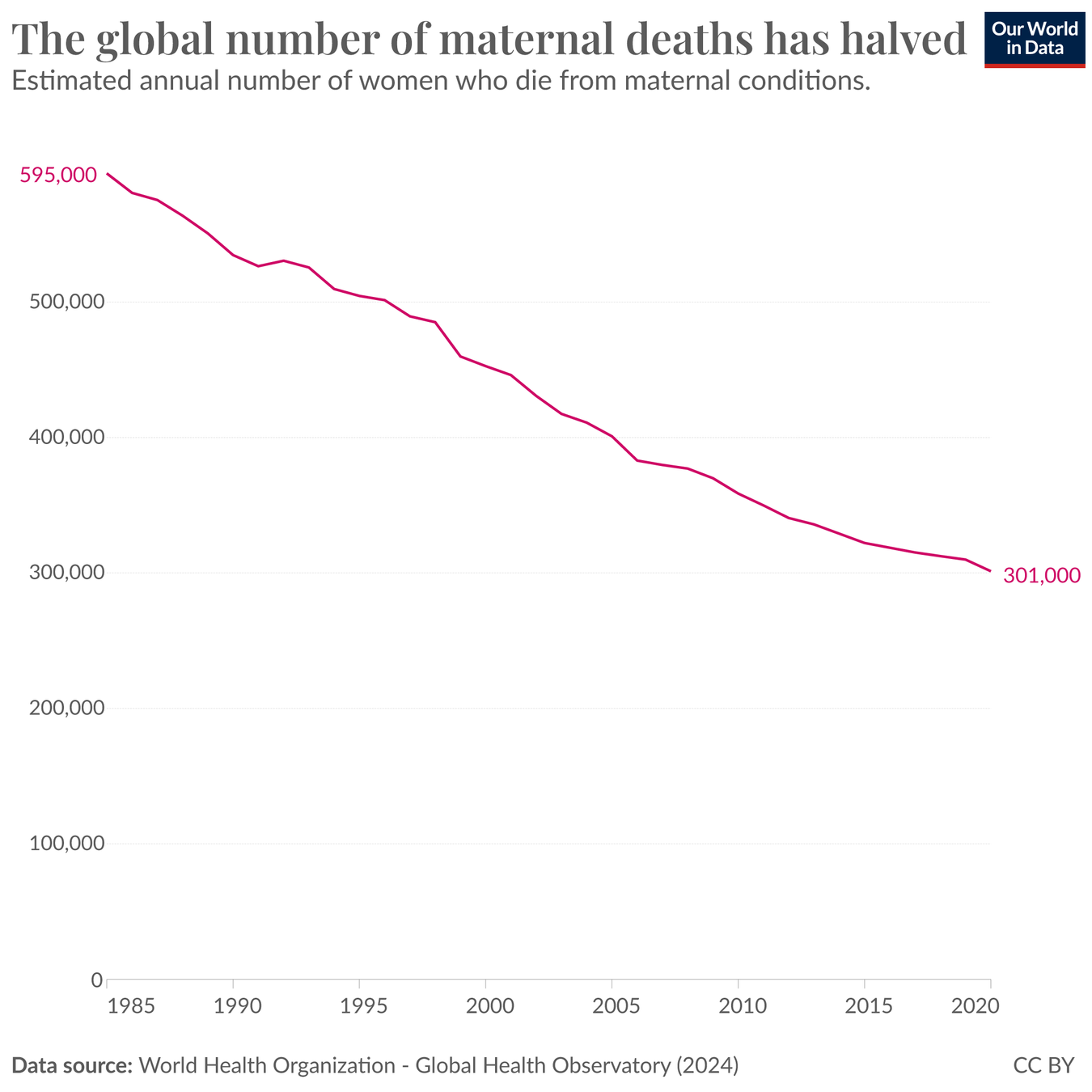
Kenya sees biggest upgrade to its vaccine cold chain in years
Kenya's immunization system just received an upgrade—over 2,000 pieces of new cold chain equipment. This will increase vaccine equity across the country. The new equipment includes solar-powered refrigerators, which are being installed by trained technicians to ensure effective vaccine storage and distribution. Gavi
Cancer survival rates continue to increase in Canada
The age-standardized mortality rate has fallen from 200 per 100,000 people in 2014 to an estimated 177 per 100,000 people in 2024, a decline of around 12% in a decade. This decline likely stems from continued efforts across the cancer control spectrum and improvements in prevention, screening, and treatment. CMJ
Deadliest form of heart attack falls by over half in United States
A recent study found that the rate of STEMI heart attacks, caused by a near-total blockage of a coronary artery, has decreased by nearly 50% over the past 15 years. However, there are still disparities in care based on income, with low-income individuals experiencing higher rates of STEMI heart attacks and being more likely to die from them. UPI
Myanmar reaches more children with vaccinations
Despite the pandemic and civil war, Myanmar significantly reduced the number of zero-dose children between 2021 and 2022 with the help of the WHO. Coverage of the pentavalent vaccine, which protects against five serious diseases, increased from 37% to 71% nationwide, reaching an additional 170,000 children. WHO
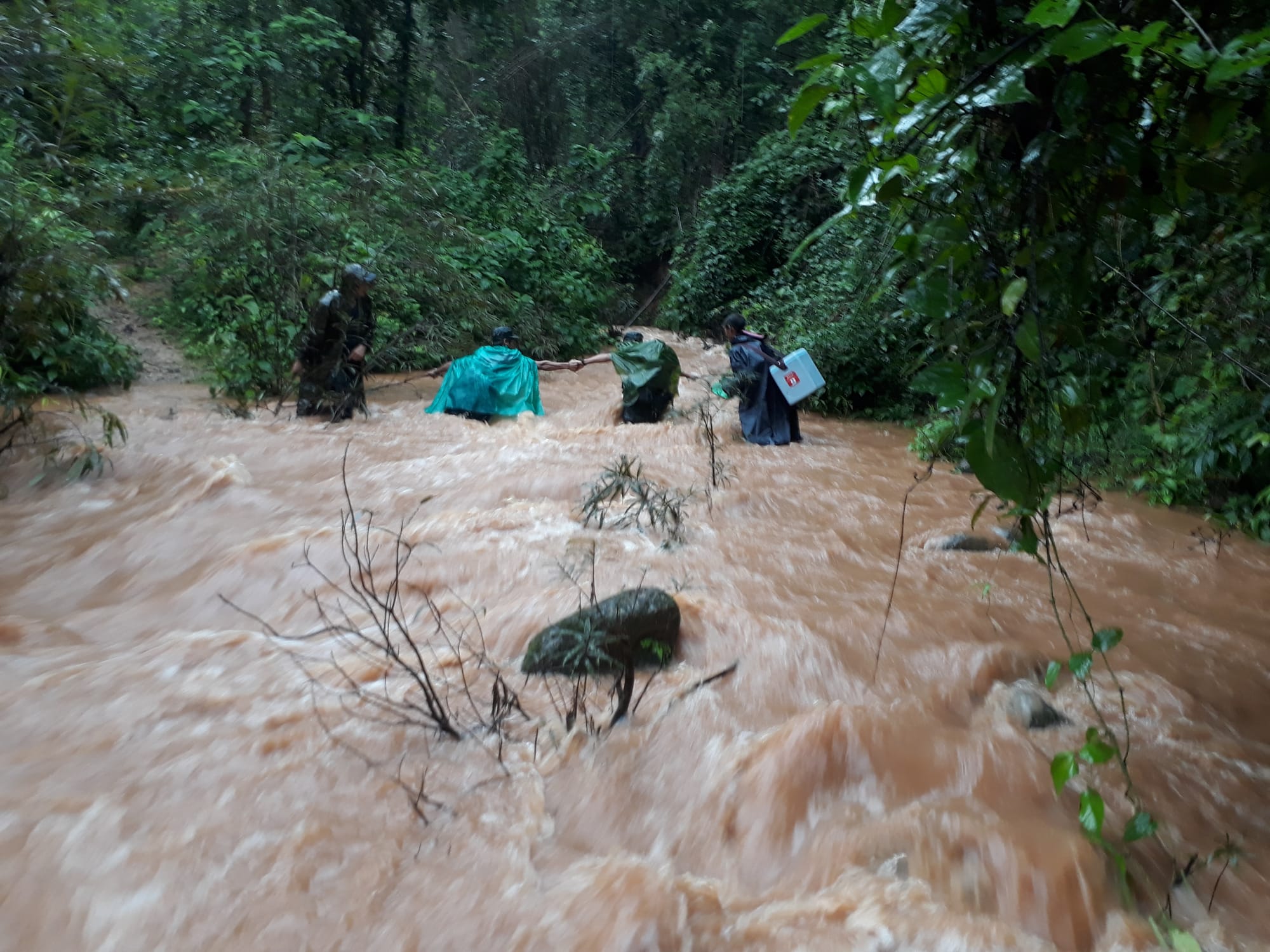
Air pollution is falling again in China
After progress faltered in 2023, the reintroduction of a pollution action plan has resulted in a decrease of 3.6% in national PM2.5 levels in the first three months of 2024. Independent satellite analysis has also shown a consistent decline in China's nitrogen oxide emissions since 2020, despite increased fossil fuel consumption. Bloomberg
Ten years ago, President Xi Jinping predicted that Beijing would enjoy lasting blue skies. Today, the temporary 'APEC blue' has transformed into the enduring 'Beijing blue' and 'China blue.' China now boasts the fastest air quality improvement worldwide.
Xie Feng, Chinese Ambassador to the United States
Lichtenstein legalizes same-sex marriage
Last week, the Alpine microstate Liechtenstein saw its parliament give final approval to same-sex marriage in a near-unanimous vote of 24-1. The bill will amend marriage law to allow same-sex couples to marry in the country of about 30,000 people nestled between Switzerland and Austria. Politico
Qatar improves access to education for 7 million children across Asia
The Qatar Fund For Development reports that it has achieved this milestone by building new schools, upgrading infrastructure, and supporting out-of-school children in 21 countries, with a particular focus on Nepal, the Philippines, and Bangladesh. The Peninsula
Kazakhstan criminalizes domestic violence
Kazakhstan just passed a law amending penalties for violence against women and children. The law addresses a spectrum of new issues, including domestic violence, sexual violence, bullying, and harassment, applying criminal liability to any intentional infliction of harm on another person, marking a 'victory for human dignity in the region and a monumental advance in human rights.' TCA

Even more good news you didn't hear about
New York just became the first US state to mandate paid time off for people receiving prenatal care, and its rate of gun violence has reached historic lows (crime-ridden hellhole, anyone?). Polio outbreak in Africa officially contained. The WHO just pre-qualified a new dengue vaccine, and it can't arrive soon enough. Malaysia is closing in on universal access to clean water and sanitation. Pope Francis continues to soften his tone on the Catholic Church's stance towards LGBTQ people. Vaccination efforts are making headway in La0 PDR, Afghanistan, Tanzania, Nepal, and Ethiopia. The US Department of Veterans Affairs just set an all-time record for benefits delivered to women veterans. Anaemia among pregnant and lactating women in Mumbai's slums has fallen from 52% to 38%. The real immigration crisis? Not enough immigrants. In the Philippines, around 800,000 fewer families consider themselves poor or hungry compared to a few months ago. Over a million people in rural Brazil are set to gain access to water and sanitation. Multiple countries around the world have hit on the same low-cost, simple solution for poor mental health: human connection.
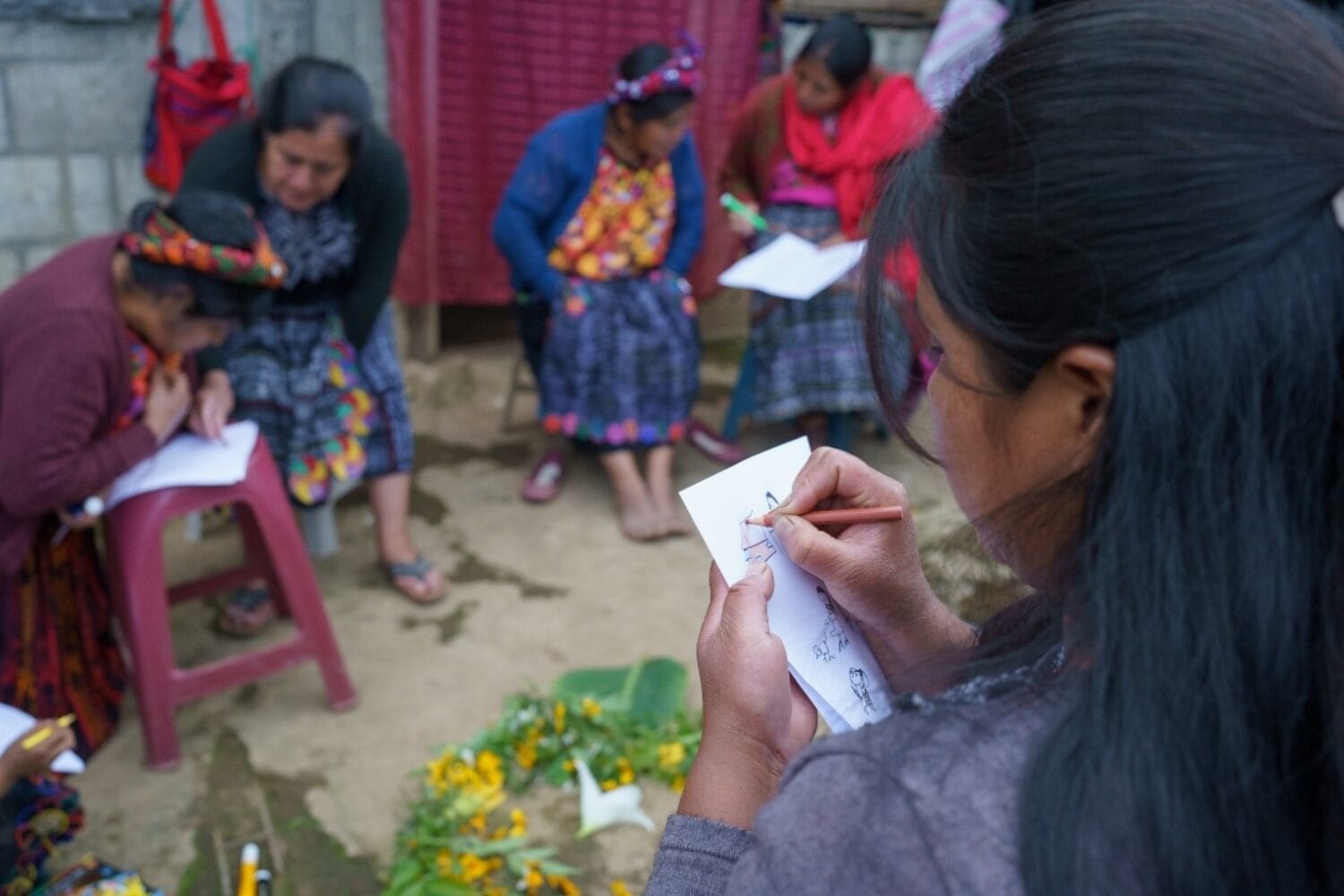
Think about supporting Fix The News!
At US$80 a year, it works out to around US$2 per edition. We think that's a pretty good deal. For the price of a granola bar you get access not only to all the good news from our free edition, but a whole lot of extra news about the increasingly unbelievable pace of the clean energy transition (be an optimist at dinner parties!) and all the latest science and technology news that's actually worth talking about.
Also... 66c of that $2 goes to charity, so that by reading good news, you get to make it happen too. To find out more, just hit the button below.
If it bleeds it leads
It's easy to find accurate data about crime in America. It's nearly impossible to get Americans to believe it. In 23 of 27 Gallup surveys conducted since 1993, at least 60% of U.S. adults have said there is more crime nationally than there was the year before, despite crime rates plummeting for almost all of that period. Last year saw one of the largest falls in the national murder rate in history, alongside historic declines in violent crime and property crime - and yet concern has only grown. Pew

Good news for the planet
The Iberian Lynx is almost free from the risk of extinction
The lynx population in Spain and Portugal has reached 2,000, a milestone that decreases the big cat’s risk of extinction. Twenty years ago, there were less than 100 in the wild, but thanks to targeted efforts by conservationists and communities, the population has steadily increased since 2015. Olive Press
Papua New Guinea passes new laws to protect biodiversity
Papua New Guinea recently passed a Protected Areas Bill, signalling a new era for biodiversity conservation. Fourteen years in the making, with support from the Australian government, the bill paves the way for traditional owners to have greater control and benefit from conservation. DCCEEW
Rewilding in Romania
Rewilding efforts have scaled up in the Southern Carpathians with Retezat and Domogled-Valea Cernei National Parks pledging more than 105,000 hectares of additional land. With free-roaming bison now thriving in the area, Rewilding Romania is working to identify natural corridors between the national parks and planning to reintroduce griffon vultures in 2025. Rewilding Europe
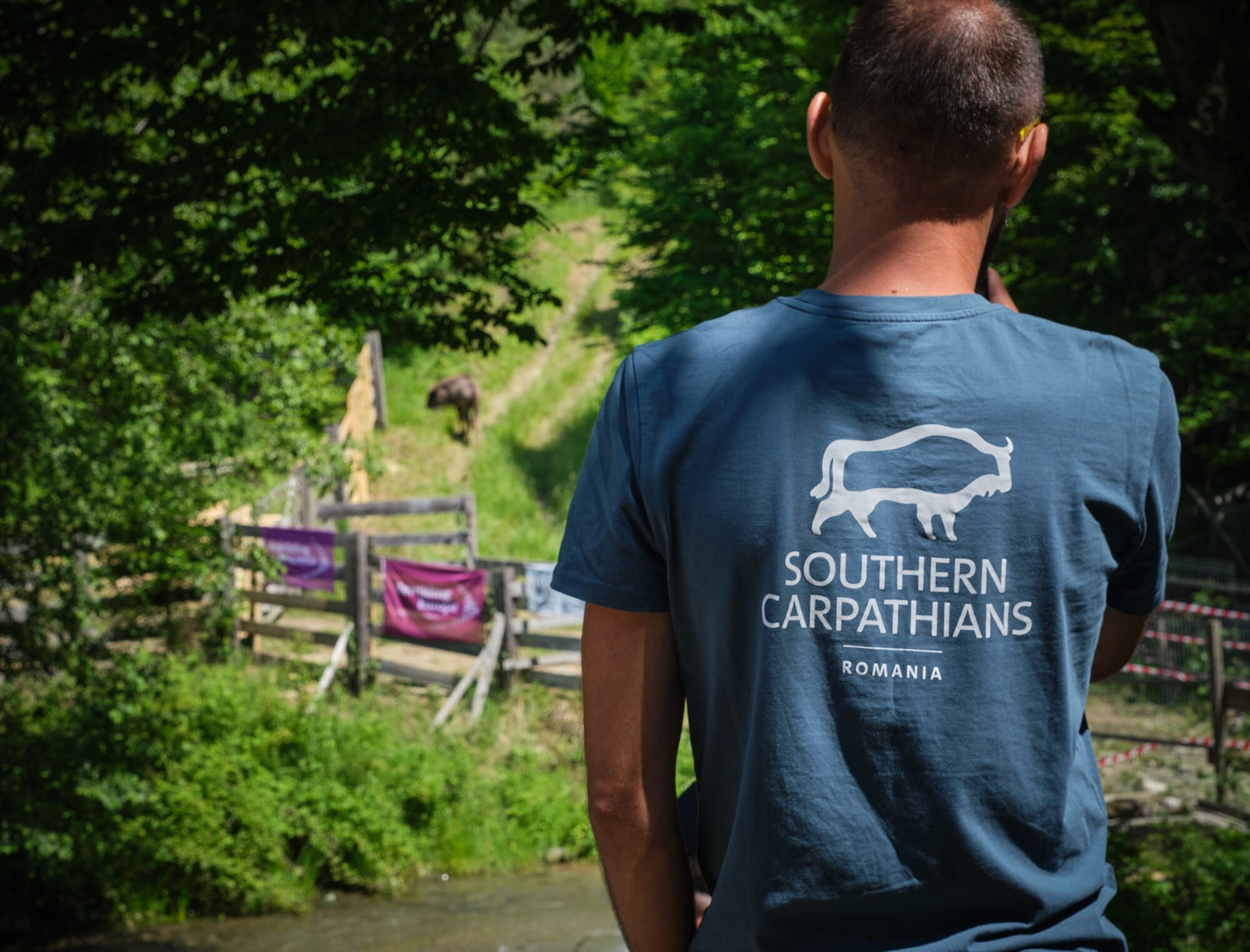
Locals save the Yosemite of South America
In a landmark agreement, a Chilean businessman has agreed to sell his 325,000-acre property to the environmentalists who fought against his development plans. The $63 million sale will preserve some of the most ecologically significant territory in South America, including forests of ancient Alerce trees and the Cochamó Valley, a cathedral of towering granite walls. NYT
The US is ramping up endangered species protection
Protections have been finalised for ten endangered species, including the alligator snapping turtle, the Suwanee snapping turtle, Washington’s Mount Rainier white-tailed ptarmigan, the Peñasco least chipmunk, and six species of Texas mussels. Critical habitats of the Humboldt marten, the Barrens topminnow, the Pearl River map turtle, and a Tennessee fish will also be protected by the end of the year. FWS
Southern white rhinos return to South African wilderness
In a new initiative spearheaded by the NGO African Parks, dozens of southern white rhinos have been reintroduced to the wild across South Africa. This marks the first phase of a larger plan to release 2,000 rhinos into conservancies across the continent. African Parks
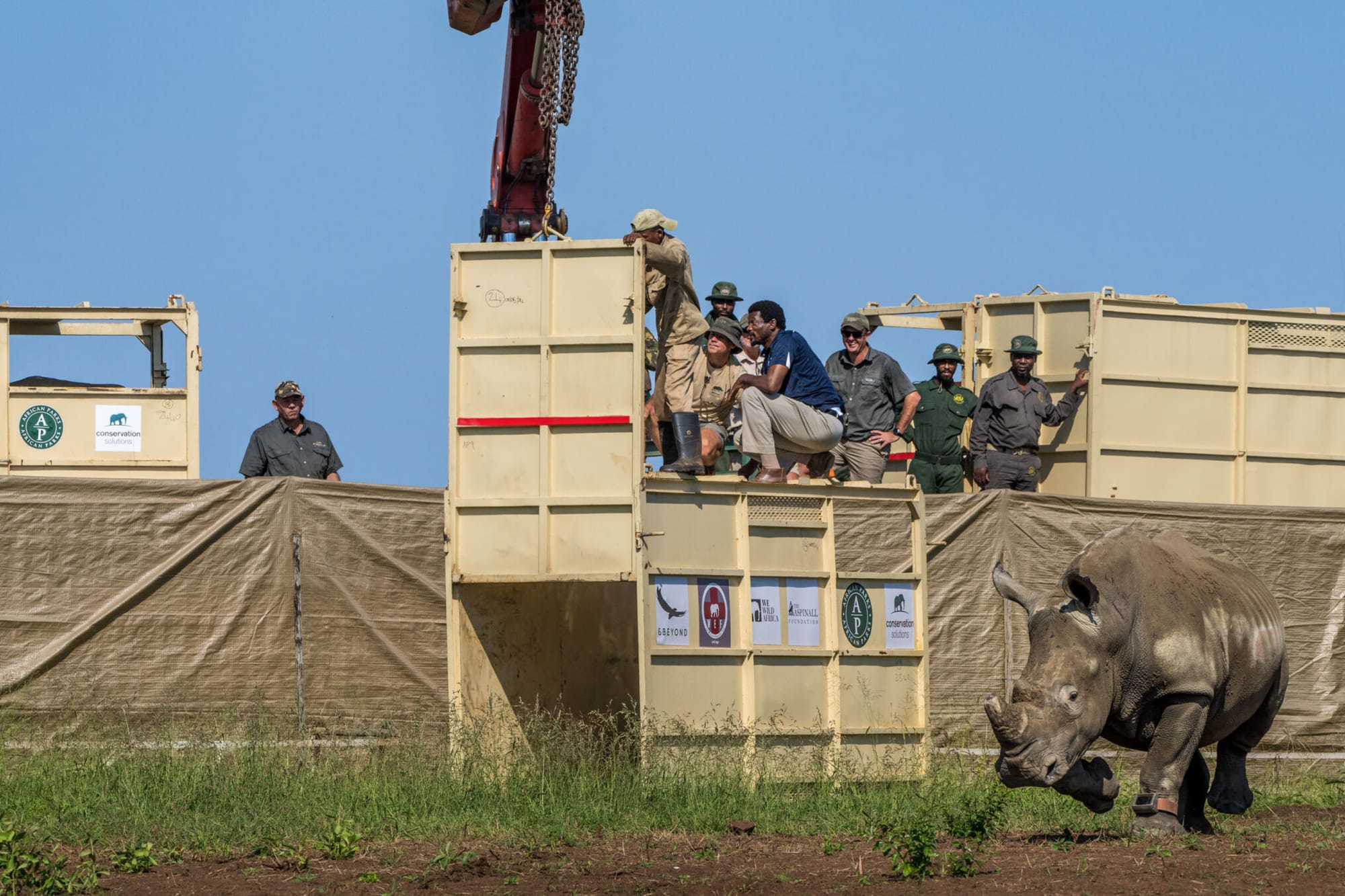
India’s forest cover has increased significantly
Over the past 15 years, India has made 'significant advancements in forest conservation' and now ranks third globally in net gain in average annual forest area. The country has also celebrated 50 years of Project Tiger and 30 years of Project Elephant to protect critical habitats; additionally, India has introduced the 'Green Credit Programme' to incentivise tree plantations and the restoration of degraded forest lands.
The secret behind Mexico’s forest success
Over half of Mexico’s forests are managed by Indigenous communities, resulting in greater biodiversity, fewer wildfires, and improved livelihoods. Of the 21,000 communities, 1,600 engage in sustainable logging, which has been 'instrumental in helping people to get out of poverty.' Sophisticated community governance and state policies have also played a role. The Guardian
Historic agreement for Colorado River Indian Tribes in Arizona
This agreement, 40 years in the making, allows the tribe to lease their allocation of Colorado River water to users who are off tribal land, freeing them from federal restrictions. The financial gain will help tribal members build essential infrastructure and update agricultural systems while contributing to water conservation efforts across Arizona. Inside Climate
Good news for Australian wildlife
The Australasian bittern has been detected in Tasmania's central highlands for the first time in 40 years after damage from dams was reversed; in Melbourne's Royal Botanic Gardens, an endangered mouse has returned for the first time in half a century; and scientists are attempting to modify the endangered northern quoll’s genes to resist cane toad toxin in order to save it from extinction.
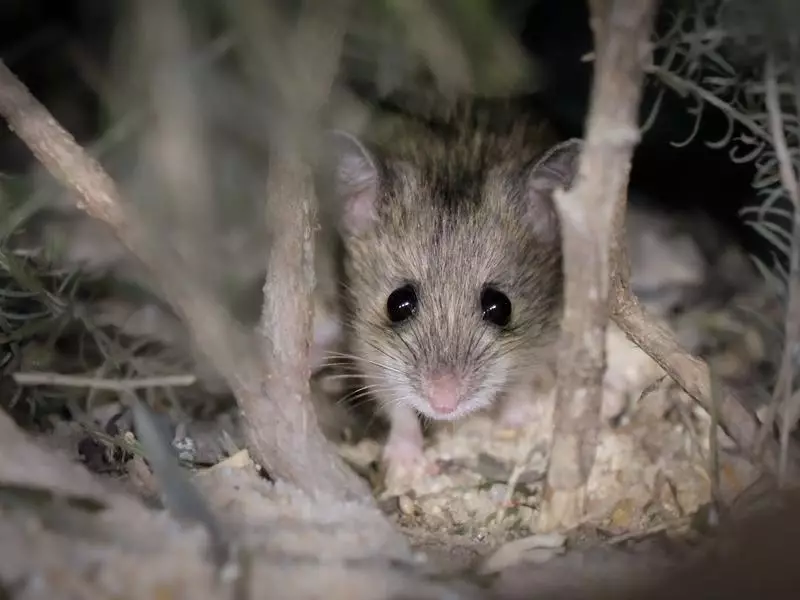
More music for those who will listen
Don't look now, but April was arguably one of the best months for conservation in US history, with massive wins for Alaska’s caribou, conservation of public lands and waterways, and protection of national parks from future oil and gas drilling. In a landmark victory for animal welfare, the UK has banned live animal exports. Oman’s ancient oasis agriculture could hold the key for sustainable land use in a warmer future. A national programme to replant and regenerate mangroves in Sri Lanka is restoring balance and breathing new life into some coastal villages. Another win for Rewilding Europe, as bearded vultures make a comeback in the French Alps. For the first time in a century, majestic sei whales have reappeared in Argentine waters. The US is buzzing with almost a million new bee colonies. Scientists have discovered what could be the first known smooth hammerhead shark nursery in the Galápagos. Some good news for Canada’s narwhal population, helped along by Indigenous conservation. A former industrial site in Bangkok has been transformed into a green urban oasis with 400 different species of trees.

That's it for this edition, thanks for reading. We'll see you here, same place same time next week.
With love,
Gus and Amy



